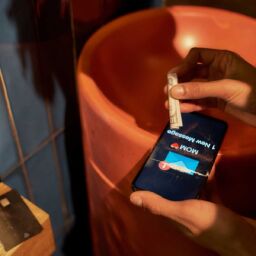Shockingly, over 14 percent of all Americans age 12 and older have used cocaine in their lives, according to the National Institute on Drug Abuse. This means the odds are that cocaine abuse will touch your life at some point, be it friends or family. It’s essential to know what the cocaine addiction symptoms are so that you are ready to step in and help a friend or family member get the cocaine addiction treatment help they need. If you or your loved one is struggling with cocaine abuse, a drug detox treatment can be the best first step on the path toward long-term recovery.
What is Cocaine?
Cocaine is a central nervous system stimulant, an illicit drug that boosts energy levels and keeps people awake while at the same time. Cocaine raises a person’s heart rate and increases their blood pressure, making them feel good by flooding their brain with dopamine. This is one of the chemicals that increases the feeling of pleasure.
There are two main types of cocaine:
- A white powder that is snorted, injected, or smoked
- A rock called crack cocaine that is generally smoked, although sometimes it is placed into body orifices
Because of its euphoric high, cocaine is one of the most addictive drugs. Most users struggling with cocaine abuse will require a professional, long-term cocaine addiction treatment starting at a cocaine rehab center to quit using the drug and enjoy a successful lifelong recovery.
Recognizing Cocaine Addiction Symptoms
Over 40% of all ER visits related to drug abuse or misuse are cocaine abuse. Additionally, cocaine overdose deaths are on the rise, making it more important than ever to know the many cocaine addiction symptoms, which include physically noticeable signs such as:
- Dilated pupils
- Runny nose
- Sudden weight loss
- Frequent nosebleeds
- White powder residue around the nose and mouth
- Burn marks on the hands and lips
- Lack of hygiene
Cocaine abuse has other signs too. These additional cocaine addiction symptoms are more subtle and personality-driven. They may be harder to identify than those impacting a person’s appearance. Be on the lookout for:
- Anxiety, unusual excitability, or a boost in confidence
- Feelings of hopelessness
- Hallucinations
- Mood swings, suddenly talkative, social isolation, risky behavior
- Changes in sleep habits or eating patterns
- Financial problems
- Decreased in interest in favorite hobbies or passions with an increased demand for privacy
- Drug paraphernalia like spoons, razor blades, and plastic baggies
The Importance of A Detox Program
Cocaine physically alters the brain’s chemical makeup, so much so that after using cocaine regularly, a person’s mind and body alike will eventually require the drug to be in their system to experience any kind of happiness or excitement. Cocaine abuse can also tear apart the fabric of your most intimate and important relationships with family members, your circle of friends and also negatively impact your ability to do your job. Starting the recovery journey with a detox program is how you can remove the cocaine from your system, receive substance abuse treatment to ensure there are no other disorders you are suffering from that may have contributed to your cocaine abuse, and begin down the path toward a long term recovery in a cocaine addiction treatment program.
If you or a loved one have used cocaine for an extended period of time, it may have caused significant damage to your family, relationships, and career. When you are ready to stop using the drug, make the decision to receive cocaine addiction treatment and begin working toward sobriety starting today. Don’t wait to get the help you need and deserve.



